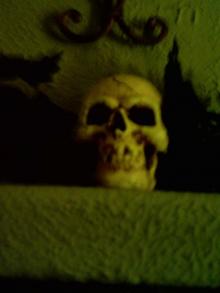- Home
- Richard Yates
Disturbing the Peace Page 9
Disturbing the Peace Read online
Page 9
“John, do you know something? I’ve been very proud of you these past – however long it’s been.” And she nestled closer to him on the cushions. “Enormously proud.”
“Yeah, well, let’s hold off on the enormous pride for a while. It hasn’t been all that long.”
“But if you could only see the changes in you. You look so much better; you seem to have so much more self-confidence, so much more spirit. You’re a different person.”
“Then why do you figure Tommy still acts funny around me? I don’t think he’s looked me straight in the eye since – you know, our little bedside chat about the suitcase.”
“Oh, John, are you still brooding about that? That’s ancient history. I talked it over with him weeks ago.”
“You what? God damn it, Janice, I promised him I’d tell him, and I told you that. You had no God damn business—” He was on his feet in a spasm of anger, and she raced to close the hall door in the old ritual of precaution against Tommy’s hearing them at their worst. “—No God damn business violating that promise.”
“You’ve got to keep your voice down,” she said, and he did, first clamping his jaws and breathing hard through his nose – the Bellevue method of self-control – but he liked the ring of his last line so much that he said it again, very low: “You had no business violating that promise.”
“I didn’t see it as a ‘violation.’ I thought you’d be relieved.”
“You thought I’d be relieved.” He tried to make that sound contemptible and emphasized it by pacing the floor with shoulders hunched and fists tight in his pockets; even so, he had to admit she had a point. He was relieved, but he was damned if he’d let her know it.
She was back on the sofa now, not curled up but sitting straight, in her civilized-discussion posture.
“… I asked him if he knew what a nervous breakdown was and he said he guessed so, but I could tell he didn’t. So I said sometimes people worked so hard and got so tired that their nerves couldn’t take the strain and they had to go to a hospital and rest. And he did seem to understand. You mustn’t forget he’s nearly eleven, John. And I said—”
“Yeah, yeah, yeah – oh, Jesus, I can picture it. You said ‘Isn’t it wonderful how Daddy doesn’t get fall-down drunk any more?’ ”
“John, I never even mentioned your—”
“Well, thanks,” he said. “Thanks for nothing.” He grabbed his coat and raincoat and headed for the door, where he stood dramatically with one hand on the knob. “I’m going out. Maybe to a meeting, maybe to get smashed. If I’m not back by morning you’d better call the cops – or call Paul Borg; same thing. In the meantime you can take your Enormous Pride and shove it up your – shove it up your—”
He let the door click shut behind him before finishing that sentence; then he was out on the street and walking fast, downtown, with no idea of where he was going. Somewhere around Twenty-third he stopped for a drink – just one – and studied Bill Costello’s directory for a meeting that might still be open. There was one on West Houston Street.
It took place in a fourth-floor loft, and its leader was quick to explain what made it different from most other meetings. “We don’t schedule any formal speakers here,” he said. “We’re impromptu. We call on anybody in the room for a few minutes’ talk; if they don’t feel like talking we respect their privacy. I see a young fella over here on my left been with us a few times before, looks like he might like to say a few words; trouble is he looks all out of breath. How about it, Carl?”
A compact, tight-faced boy who couldn’t have been more than twenty went forward, said his name was Carl and that he was an alcoholic.
“Hi, Carl!”
“And you’re right, Tony, I am out of breath. Got on the wrong train in Brooklyn; had to get off down at Broadway and Delancey Street and I – I ran all the way.”
“Whyn’t you take it easy a second, Carl?” Tony said. “Get your wind back.”
“Okay.” Then he said “Guess the reason I keep getting lost in the subways is I’m not a native New Yorker. I’m from Kansas. Led a very sheltered childhood out there; what I mean is, I spent most of it in state correctional institutions. Wasn’t bad; I always had three meals a day, always had clean clothes and a clean place to sleep and plenty of smokes, and I learned my trade. I’m a barber. Then I got out, and that’s when I started drinking. Oh, if it was just me it wouldn’t matter; I make good money; I’m a good barber even when I’m half crocked; but it’s not just me. Past year or so, eleven months, I’ve been living with this girl in Brooklyn. And the thing is – the thing is, it’s not working out. I’m not – She’s not – It’s not working out at all.” He was silent for a few seconds. “Hell, I know I can’t bullshit you people. I won’t claim I’ve quit drinking because it’s not true.” And here his voice could scarcely be heard. “I’m scared, you see. I’m scared she’ll leave me. That’s why I come to these meetings. That’s why, when I take the wrong train like tonight, why I figure it’s worth running all the way – worth it because if nothing else, if nothing else, I can be with people like you for an hour – just an hour – and be sober. Thank you.”
There was plenty of applause but Carl didn’t acknowledge it; he went quickly back to his chair and used it in a way he’d probably learned in the correctional institutions: sit stiff, keep both hands on your knees, look straight ahead and never smile, especially after any chance that you’ve said something dumb, or smart, unless you want somebody to think you’re some kind of a fruit.
“I’d like to address my remarks to Carl,” said the next speaker, a wobbling old man with few teeth. “I want to say ‘Carl, I don’t care how many wrong trains you take. I don’t care how much running you have to do. Just keep coming, boy; keep coming. You’re on the right road.’ ”
There were four or five other speakers, and then Tony took over. “We’ve got something special to conclude our meeting tonight,” he said. “We’ve got a birthday. Now, personally, I’ve always thought most AA birthdays are kind of silly: you see them give some guy a cake with six, eight, twelve candles to prove how many years he’s been dry, they tell his last name in honor of the occasion and he makes his little speech, and you sit there thinking What does this guy need AA for? He just tryna show off, or what? But a first birthday, that’s different. That’s something else. That’s an achievement. I mean those first twelve months – well, hell, you know what I mean.” He nodded toward a curtained-off portion of the loft and out came a pink man, all smiles, bearing a pink cake with a single candle whose wavering flame he shielded with his hand. Then Tony said “Will Mr. Sylvester Cummings please come forward?”
A gaunt middle-aged Negro got up and went to the rostrum, wearing a cheap blue suit and trailed by cheers and whistles. He shook hands with Tony and thanked the man who gave him the cake platter, but when some of the audience broke into a ragged chorus of “Hap-py birth-day to—” he held up one hand and said “No, no, please; never mind the birthday song. I mean I appreciate it, but that’s a song for children. I’m forty-seven years old. Even my own children aren’t children any more; they’re grown and gone.” He stood looking down at his cake for some time. “It doesn’t seem possible,” he said. “A whole year. Only thing I know for certain, I never would’ve made it without your help – without Tony here and all you other people. I think back to the way I was – way I was for more years than I want to think about – and sometimes all I can remember is how I’d wake up every morning on my knees with my arms wrapped around that old toilet bowl, puking my guts out, and I’d say to myself ‘Sylvester, you are praying. You are worshiping at the only altar in which you have ever truly believed.’ ”
That won him a laugh, but he didn’t smile. “I’ve never been a very religious man, you see. Even here at these meetings, when it’s time for the Lord’s Prayer, I just kind of move my mouth a little and hope nobody’s noticing. Matter of fact I don’t enjoy cake very much either – maybe some of you people can help me out on th
is one.” He looked down at it again in a long, meditative pause. “But I have come to believe something, this past year. I’ve come to believe that I would rather – I would rather light one candle than curse the darkness.” Then he blew the candle out, and there was a standing ovation.
It was enough to send Wilder home without stopping for even so much as a beer, enough to make him wake his wife and tell her he was sorry.
“Oh, I know, dear,” she said. “I know …”
He had insisted he wouldn’t spend much time on the army with Dr. Blomberg, and he didn’t. The army had convinced him he wasn’t very smart and jolted all the religion out of him; he’d seen action only at the end of the war in Europe and spent his whole final year in the mildewed “Tent Cities” of France, where there’d been nothing to do, between painfully infrequent threeday passes, but go to the movies every night. “I told you we’d get back to the movies.”
“Mm.”
“Funny thing: in civilian movie-houses people’d sit still for any kind of trash – you’d never hear anybody laugh out loud in a love scene or anything like that – but in the army there was nothing magic about the big silver screen any more, and we all got to be very vocal, brutal movie critics. We could spot a fake plot or a fake ‘message’ a mile away; we’d stomp and laugh and yell obscenities at anything cheap or trite or hoked-up or sentimental, and I remember thinking Jesus, these guys are like me: we’ve all been raised on movies, and we’re just now beginning to figure out what frauds most of them are. And here’s what I’m getting at, doctor: that’s when I decided I wanted to make movies. Good movies. Oh, I knew I couldn’t be a director – that’d take more talent than anybody with an IQ of a hundred and nine could claim – but a producer: the man who gets the idea, raises the money, hires the talent, puts the whole thing together. That’s what I wanted.
“Course, I couldn’t tell my parents, or thought I couldn’t. They were still in the old apartment when I got home, working at their old jobs, and they both looked old as hell – they must’ve been in their middle fifties – but the damned chocolate business was bigger than ever in their heads. My father spent all his free time hustling up Venture Capital, and the funny part is he did well. Everybody was talking about a postwar boom: just the right time for a good, well-marketed luxury product to catch on. He took me along with him to meet some banker. ‘This is my son John. Twenty years old; infantry veteran just back from Europe; went through the Bulge and all that. Going to Yale next month; he’ll be in on the business from the start.’
“When we got out of there I said ‘Dad, could you please lay off the Bulge? You know I didn’t go through the Bulge.’
“He said ‘They gave you the star for it, didn’t they?’
“And the point is, Doctor, I’d told him time and again, time and again they gave the damn star to everybody within a hundred miles of the Bulge. So I said ‘Look: it may not matter to you but it matters to me. Can’t you see that?’
“And the little bastard just walked along – he was little, even smaller than me, with a face like a walnut and this old-timey, pearl-grey hat pulled down hard over his eyes – just walked along and said I had a lot to learn about the business world. Jesus.
“But I did go to Yale; that was the college they’d picked for me, and they’d been careful to send me the application forms the minute the war was over so I’d beat the big rush of GI Bill students. I still don’t understand how I got in and I was scared shitless of flunking out. The reading assignments almost killed me – I’d be up reading all night while everybody else was out drinking and screwing around – but I made it through freshman year, and by then my parents were in business. They had a little factory up in Stamford with about six employees; they’d paid some designer a lot of money for the most elegant-looking package you ever saw; they were turning out honest-to-God chocolates every day and they had my own summer’s work cut out for me: I was the assistant to an older guy who took ‘the line’ around to wholesalers all over New York.
“ ‘Taste one – just taste one,’ the older guy’d say. ‘Be our guest.’ And I’d sit there smiling like a clown in my J. Press suit, wondering what the hell I was going to do with the rest of my life.
“Well, it didn’t last long; my sophomore year was a disaster. Barely made it through the first semester, and along about April I sort of gave up. Went to the movies all the time, quit studying, quit trying, and I flunked out that June.
“And my God, talk about family tragedies! They seemed to think I’d done it on purpose, just to thwart them. Started bringing home armloads of other college catalogues, and I’d throw ’em away. Oh, I’ve always regretted that – there must’ve been plenty of colleges with remedial reading programs – but the thought of any college made me sick; besides, I knew they only wanted me to graduate for the sake of Marjorie Wilder’s fucking Chocolates. Quarrels, recriminations, fights, tears – Finally I said ‘I don’t owe you people anything,’ and I took off.
“Got a room in the city and answered a help-wanted ad for an outfit called Films for Industry: ‘Learn the ropes of motionpicture production.’ Paid me thirty-five a week to carry lights and drag cables around the floor and get sandwiches for the actors and the camera crew, and I mean that might’ve been okay if they’d been making halfway decent movies, even industrial movies, but they weren’t. I remember one they made for Meade Record-keeping Systems; the title was It Must Be Somewhere – twenty minutes of unfunny slapstick about what happens in the office when an important paper gets lost. Bosses blowing their tops, secretaries crying, file cabinets dumped out on the floor; then the man from Meade comes in and saves the day. Finds the paper, says ‘Record-keeping is my business’ and goes into his sales pitch. The End.
“And the worst part, all those Films for Industry people were happy as clams – none of them ever thought of getting into real movies, even the girls. I took one girl out to lunch, tried to get her talking about movies and she looked at me like I was some dopey little kid: ‘You mean consumer films? Feature films?’ Didn’t consider herself an actress at all; couldn’t have cared less. Then it turned out she was shacked up with one of the Films for Industry executives; soon as his divorce came through she’d quit working and they’d settle down in Forest Hills.
“… Oh, if I’d had any guts I’d have hitchhiked out to Hollywood and hung around the studios until somebody hired me as a grip or even a mail clerk – if I’d done that I might even have become a producer by now – but I didn’t. Maybe I wasn’t ready to make that big a break with my parents; I don’t know. Anyway I didn’t.
“Then somebody told me the Herald Tribune was taking on space salesmen, paying good money, not too fussy about college degrees. So I said I’d had three years at Yale instead of two, and that’s how I got started in this racket. That’s how I met Janice too – she worked there. We got married within a year and then we had our boy. By that time I was working for a trade journal, Chain Store Age; then I moved over to a magazine called Vanguard and then to The American Scientist, and somewhere along the line the whole movie-producer idea evaporated. Oh, don’t worry, doctor, I’m not saying marriage tied me down; you won’t catch me blaming my wife for everything I can’t blame on my parents or any neurotic horseshit like that. The ambition just went away, that’s all. It’s come back now and then over the years – usually when I’ve been drinking, I guess – but it’s gone. Nobody’s fault but mine. You want to hear what happened to my parents?”
“Mm.” And the doctor inspected his watch.
“Well, we had a halfhearted reconciliation after the baby was born, but in the meantime they’d found what I suppose you guys would call a surrogate son: another Ivy League type, only this one had his diploma, and he really did take over the business and build it up, just the way they’d always thought I would. They were rich as hell by the time they retired. My father died four years ago and my mother’s in a nursing home now – she had a brain hemorrhage and she’s pretty much a vegetable �
� but son of a bitch, you can’t walk into any supermarket in America today without bumping into this big-assed revolving rack: Marjorie Wilder’s Chocolates. Six bucks a box. How about that?”
“Mm. Yes. Well, I’m afraid our time is—”
“Not so fast, Doctor.”
“Mm?” Blomberg blinked up through his pink-tinted glasses.
“You know something? You’re the only dead-silent bullshit artist I’ve ever met. I tell you the whole God damned story of my life; you sit there saying absolutely nothing and hauling in a hundred a week of my money, and you know what that’s called? That’s larceny.”
They were both on their feet. “I have another patient waiting, Mr. Wilder.”
“Let ’im wait. You’ve kept me waiting often enough. I’ve got one question: When the hell are you gonna start talking? When’s all this famous ‘work’ and ‘help’ and ‘therapy’ supposed to begin? Huh?”
“Mr. Wilder, I don’t know what’s brought on this hostility, but perhaps it’s something we can discuss Thursday.”
Then a line of Spivack’s in Bellevue seemed appropriate: “Yeah, well, don’t hold your breath.”
“Do you plan to cancel your Thursday appointment?”
“It might just be,” Wilder said, trembling at the door, “that ‘our time is up’ in more fucking ways than one.”
“Do you want to terminate your association with me?”
“Suppose we let you sweat that one out. I’d like to picture you all alone here twice a week, watching all my money float away. So long, pink-eyes.”
And jolting home on the subway he kept thinking of embellishments he might have put on that final speech: he might have said “… all alone here twice a week with your finger in your mouth, or up your ass – depending, of course, on whether you’re an oral- or an anal-fixation type …” But then he began to wonder if Blomberg might pick up that avocado-green, snotgreen phone and call Paul Borg with the news of his outburst. Well, hell. What if he did?

 The Collected Stories
The Collected Stories A Special Providence
A Special Providence Young Hearts Crying
Young Hearts Crying Easter Parade
Easter Parade A Good School
A Good School Cold Spring Harbor
Cold Spring Harbor Eleven Kinds of Loneliness
Eleven Kinds of Loneliness Disturbing the Peace
Disturbing the Peace Liars in Love
Liars in Love The Collected Stories of Richard Yates
The Collected Stories of Richard Yates Night Noises
Night Noises Disturbing the Peace (Vintage Classics)
Disturbing the Peace (Vintage Classics) The Easter Parade
The Easter Parade